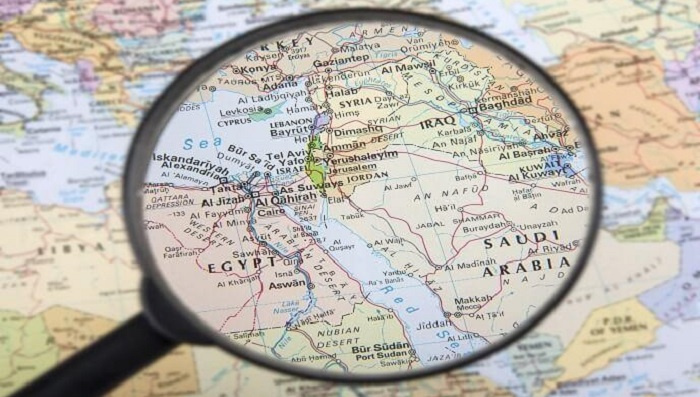To the Brink or Back? Iran’s Munich Proposal Should Be Taken Seriously

The Munich Security Conference 2018 was held in Bayerischer last Friday. As significant as the Iran nuclear deal is, one would expect defense of the agreement struck between Iran and the P5+1 and a clear confrontation with the US administration's position on the matter to be central. Even on Saturday, the conference turned into a scene for Europe and Russia to shield the deal against the US. In response to what Deputy Secretary of State John Sullivan said during the conference, Obama administration's Energy Secretary Ernest Moniz refused there were flaws to be corrected in the JCPOA. Nonetheless, remarks made by Iran's Javad Zarif, Benjamin Netanyahu and Saudi Foreign Minister Adel al-Jubeir turned the focus of the conference to the current debate in the Middle East, namely that of security relations and the military structure after the ISIS.
In a recent extensive survey from international relations professors from more than ten countries, a majority regarded the Middle East as the major threat for world security and peace. This is nothing new but it seems that the West is realizing the fact that it has no solution for it. Today, even independent analysts in the US itself consider the major issue with the country's ME policy to be a ridiculous effort to ignore the realities of a complex region. Putting the US foreign and security policy for the highest bid in the region, though clearer during Donald Trump's first year in office, has practically been a mechanism ruling the US' Middle East policy for more than two decades, albeit more subtly.
To face this extra-regional gaucherie and regional backwardness, Iran's diplomatic apparatus has set its main goal in the past five years to be a fight against the Arab-Israeli Iranophobia project. Field action of the response includes earnest efforts to help legitimate governments continue their rule over their territory and to fight terrorist groups. The soft side of the action includes efforts by Iran's foreign ministry which we have seen during the recent years in international forums, and public diplomacy to find grounds for regional understanding.
Zarif's attendance and worthwhile speech in the Munich Conference is a prominent episode of this second side that let down the extraregional front's hope to escalate tensions. In contrast with the saber-rattling of Netanyahu and al-Jubeir, Zarif's emphasis on readiness for talks with all the countries in the region, speaking of the need to end regional hegemony, the need to expand regional security cooperation and reintroduction of Iran's proposed framework for ME security talks are all parts of Iran's principled, stabilizing and intelligent policy as the ultimate solution for the Middle East crisis.
The Munich Security Conference theme was aptly chosen "To the Brink and Back". Among regional personalities attending the conference, a major group continued their warmongering ways and threatening rhetoric, which practically pulls the region to the brink.
The Europeans are incapable of playing roles in the region. The Americans have lost their power and will remain confused. The Russians lack the legitimacy to fill the security gap in the Persian Gulf. However, time is ripe for a new security architecture in the Persian Gulf. In the words of Iranian foreign minister, "we have proposed, creating what we call a “strong region” as opposed to a “strong man in the region… A strong region where small and large nations—even those with historical rivalries—contribute to stability. This is simply recognizing the need to respect the interests of all stakeholders, which by its very nature will lead to stability, while hegemonic tendencies by any regional – or global — power will, by its very nature, lead to insecurity". That said, we should wait and see which way the countries in the region choose, to the brink or back?

